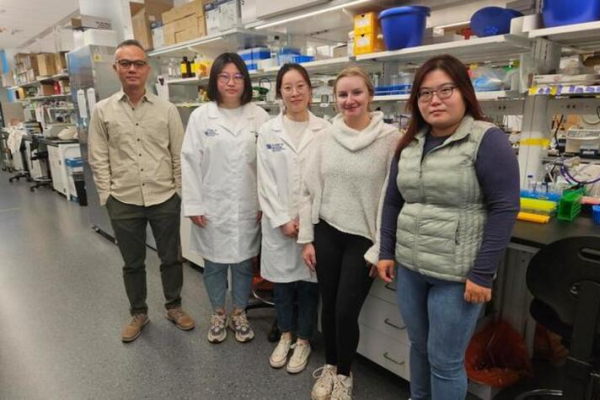UK's First Bridge Clinic Offers Immediate Access to Opioid Treatment
After being revived with Naloxone in the emergency room, patients immediately enter withdrawal. Cold chills, vomiting, diarrhea – “dope sickness” is what many call it. The feeling is hard to describe, but many people who’ve experienced it or witnessed it say it’s like the worst flu times 10.
This is a hard time to talk with patients about treatment and recovery and about the hard work they would need to do to reclaim their lives. When the Kentucky Cabinet for Family and Health Services put out a call for ideas to improve access to evidence-based treatment for opioid use disorder (OUD), Drs. Laura Fanucchi, Michelle Lofwall and Sharon Walsh submitted a proposal.
In 2017, through a partnership with the emergency departments at UK HealthCare and the UK College of Medicine’s Center on Drug and Alcohol Research (CDAR), and with financial support awarded by the state Cabinet for Health and Family Services made possible through the 21st Century Cures Act, Fanucchi, Lofwall and Walsh created a clinical setting where providers in the emergency department or inpatient teams at UK HealthCare’s Chandler Hospital and Good Samaritan Hospital could refer patients to receive transitional care for OUD.
Early in 2018, the First Bridge Clinic was established to provide a low barrier treatment option for patients.
Many people with OUD come in contact with the health care system for issues related to illicit opioid use. Often, people present to the emergency room with an opioid overdose, or superficial or deep-seated infections due to injection drug use. Many of these infections require lengthy hospitalization and sometimes surgical intervention.
When patients receive treatment for medical complications related to OUD and injection drug use, they may not receive treatment for the underlying substance use disorder. By failing to address the underlying cause of the medical complications, patients remain vulnerable to reinfection, readmission and death.
People with substance use disorders face a lot of barriers in accessing treatment. Thanks to the creation of the First Bridge Clinic, patients can leave UK’s emergency room or be discharged from inpatient care and see a provider the same day or the next.
“So frequently it's hard for patients to find an appointment immediately. And that's what we're here to do," Lofwall said. "So, patients can be seen the same day as they're being discharged or the day after. We have a walk-in clinic, also, with walk-in hours.”
Evidence-based treatment is provided at the First Bridge Clinic this includes medication management, counseling, nurse care navigation, peers support services, overdose prevention and naloxone training. There are providers from varying specialties working in the clinic including an anesthesiologist, psychiatrist and primary care physicians.
In order to increase the likelihood of success, changes had to be made in the emergency room, Dr. Roger Humphries, chair of the Department of Emergency Medicine, led his staff to develop and implement new protocols. "While change isn’t always easy, it was necessary," Humphries said. “We’re not going to make any progress in the opioid epidemic if we continue with the old mindset.”
Humphries studied what other emergency departments were doing; he read research about the success, so he and others on his team became waivered to prescribe buprenorphine, an effective FDA-approved OUD treatment, and partnered with the First Bridge team to develop a better method for referring patients to treatment.
The goal for providers and public health leaders is to reduce rates of overdose and overdose deaths. A critical reason to avoid waiting lists is that individuals who have experienced a non-fatal overdose are at increased risk of future fatal overdoses.
"An essential part of the substance use disorder treatment system is to be able to provide treatment-on-demand rather than sending patients who are at risk for overdose death to treatment waiting lists," Fanucchi said. "This way we can engage patients and link to treatment at the moment of contact with the health care system and hopefully reduce substance use related morbidity and mortality."
A problem like the opioid crisis requires a team - physicians, nurses, social workers, counselors, peer support specialists, researchers and other critical staff who can adapt, collaborate and think outside the box, she said. Every day, the team at the First Bridge Clinic does all that and more, to provide care to those who need it most.
During the 2019 National Rx Drug Abuse and Heroin Summit taking place in Atlanta, the First Bridge team including Lofwall, Fanucchi, Walsh, Humphries, provider J. Thomas Murphy and nurse navigator Mandy Binkley, will give a presentation called, “Bridge to Life: Connecting Individuals Presenting to the Hospital with Complications from Opioid Use Disorder to Evidence-based Care,” in which they will discuss the clinic, their roles and the successes the clinic has experienced to date.
More from this series Research Priorities - Substance Use Disorder
Credits
Text by Olivia Ramirez and photos by Pete Comparoni (UK Public Relations & Marketing).


